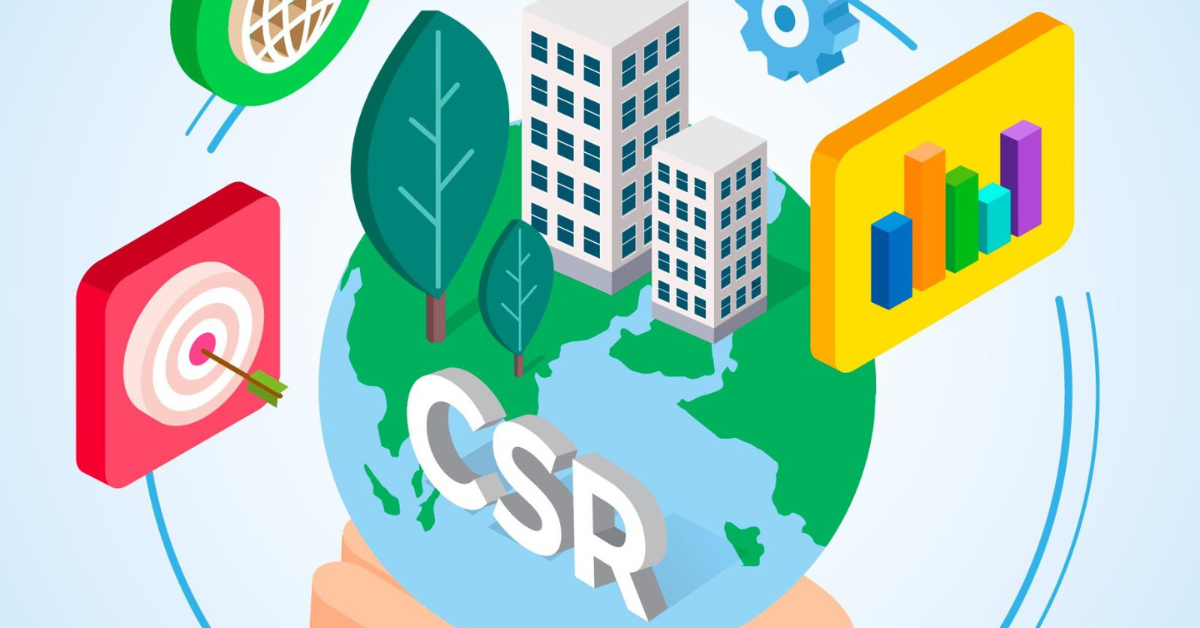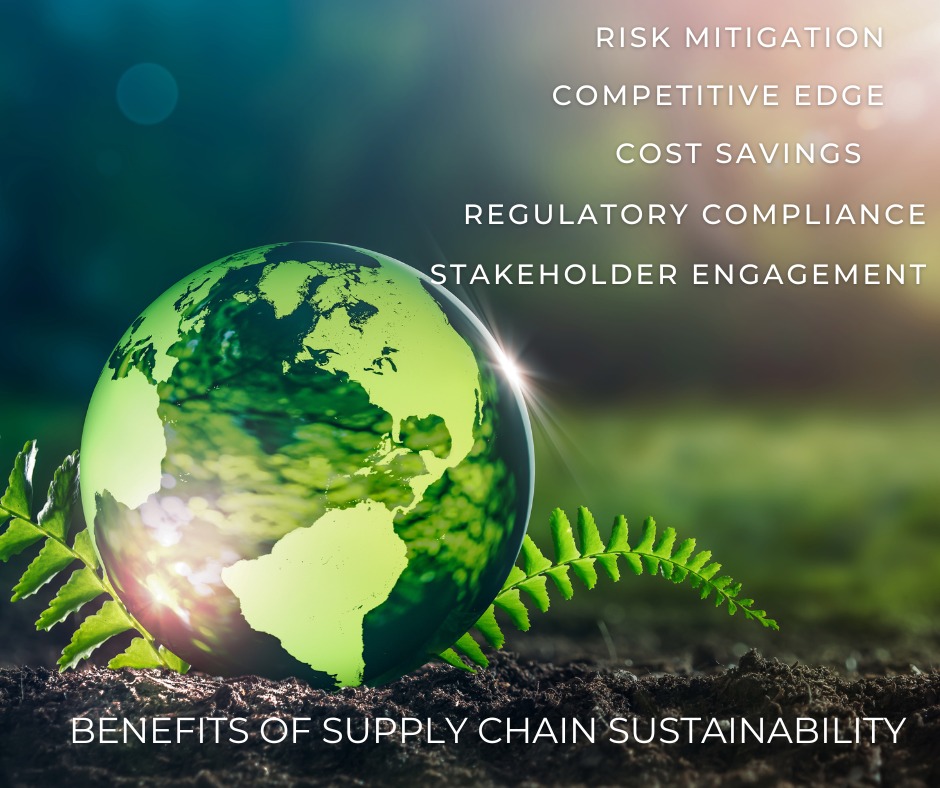Supply chain sustainability: A norm for organizations
Quick summary: Unlock the power of supply chain sustainability and discover why it has become a norm for organizations. Explore the key strategies, benefits, and best practices to build a sustainable supply chain. Enhance your environmental and social performance while driving business growth. Read our blog to learn more about achieving supply chain sustainability.

In today’s rapidly evolving business landscape, supply chain sustainability has emerged as a critical norm for organizations to make a positive impact on the planet. Businesses today recognize the urgent need to align their supply chains practices with sustainable principles to mitigate environmental risks, uphold social responsibility and meet the growing expectations of conscious consumers.
According to CDP, companies with sustainable supply chains are 55% more likely to attract environmentally conscious consumers.
From ethical sourcing and responsible manufacturing to carbon footprint reduction and waste management, supply chain sustainability encompasses a wide array of practices that promote long term resilience and contribute to a better future.
In this blog, we will delve into the world of supply chain sustainability, exploring its significance, key considerations and transformative benefits it can bring to organizations. Read on to know why supply chain sustainability is becoming a norm for organizations.
What is sustainable supply chain management?
Sustainable supply chain management is an approach that focuses on integrating environmental, social and economic considerations into every stage of the supply chain process. It aims to minimize negative impacts on the environment, support social well-being and create long term economic value.
In today’s interconnected world, supply chain sustainability has emerged as a powerful force driving responsible business practices. It goes beyond traditional concerns of revenue and profit, encompassing a holistic approach that considers the environmental and human impact of every step in the supply chain journey. From sourcing raw materials to production, storage and delivery, companies are striving to minimize their ecological footprint while making a positive difference in the lives of people and communities. It is a new era where organizations are embracing their roles as custodians of the planet, managing factors like energy usage, water consumption and waste production. Supply chain sustainability has become a transformative mindset that shapes companies to operate in a way to forge a path towards a sustainable future for all.
The Importance of Supply Chain Sustainability
The supply chain of a typical consumer company generates social and environmental costs far beyond those of its operations, accounting for more than 80% of greenhouse gas emissions (GHG) and more than 90% of the impact on air, land, water, biodiversity, and geological resources.
To walk towards a more sustainable future, the first step for any business is to know the level of environmental, social, and economic impact generated by its daily operations, and they should be able to answer these main questions regarding sustainable practices in the supply chain
- Are my materials sustainable? The answer lies in your suppliers and what goes into making their materials. Supply Chain Sustainability means looking at all the “ingredients” your product uses.
- Are my processes sustainable? It is crucial to understand and measure your product’s current environmental performance footprint.
- Knowing how efficient your facility is and how to reduce its impact will enhance the overall efficiency of your processes. At the same time, you can benefit from cost reductions and be identified as an organization with a sustainability program.
- Can I confirm my sustainability commitment? Providing tangible proof of your sustainability commitments, endorsed by internationally recognized sustainability standards or Industry-specific sustainability certifications, will positively affect your standing in clients’.
In today’s dynamic business landscape, consumer companies face a pressing need to prioritize sustainability. Environmental degradation and lack of accountability have brought forth risks that directly impact these companies’ operations. From water scarcity and deforestation to air pollution, carbon emissions and social injustice like child labor violations, challenges are immense. Scientists, governments and visionaries are demanding transformative change in sustainability practices. This shift is not just a trend but a necessity for businesses to thrive in a world that demands accountability and responsible business conduct.
Consumer brands must adapt to this new reality and proactively address their environmental and social impacts. They need to adopt sustainable practices not only to minimize harm to the planet but also ensure well-being of communities.
- Top of Form
According to a Mckinsey report, 90% of natural impact ( affecting air, soil, land) and 80% of greenhouse gas (GHG) emissions in most consumer-goods categories are in supply chains
In the quest for sustainable growth, consumer brands must take a bold step towards minimizing the environmental and social costs associated with their products and services. They must find innovative ways to flourish without burdening the environment or compromising human welfare.
Strategies for Sustainable Supply Chain
Set Sustainability Goals
These goals should align with the organization’s sustainability vision. This could include reducing carbon emissions, minimizing waste, promoting sustainable sourcing and improving social conditions
Engage Suppliers
Collaborate with suppliers to adopt sustainable practices. This will promote transparency and accountability throughout the supply chain.
Supply Chain Assessment
Identify the environmental and social risks and opportunities within your supply chain with continuous evaluation. These assessments will drive continuous improvement and address concerns.
Adopt Circular Economy practices.
Transition from a linear approach to a circular economy approach. Explore opportunities for recycling, resource recovery and product life extension.
Optimize transportation and Logistics.
There is a need to reduce fuel consumption, carbon emissions and environmental impact and thereby improve efficiency of operations in transport and logistics.
Leverage Technology and Data
Utilize digital solutions such as supply chain management software, IoT and data analytics to gain visibility into the supply chain. Technology drives traceability, transparency and real-time data sharing.
Monitoring and Reporting
Establishing robust monitoring and reporting systems enables tracking progress towards sustainable development goals.
What is the difference between Green Supply Chain Management and Sustainable Supply Chain Management?
Green supply chain management: It aims to achieve zero waste, net zero emissions, and zero additional negative impacts in the supply chain. It seeks to ensure that the processes used to manage a supply chain keep a constant watch on improvements or any activity that can potentially decrease the environmental footprint of a process or product.
Today’s green supply chain management requires incorporating environmental focus at every stage of product and service in a supply chain.
Sustainable Supply Chain Management: In addition to the environmental dimension, which requires a paradigm shift in how supply chain networks are designed and managed, sustainable supply chain management includes the economic and social dimensions. A sustainable supply chain demonstrates excellence across the spectrum through design, governance, management, and best practices.
Economically, a sustainable supply chain ensures excellent customer experience, high efficiency, resilience, responsiveness, and accuracy; socially, supply chain leaders ensure safety, health, and development.
Challenges in Supply Chain Sustainability
- Lack of Supply Chain transparency
- Supplier Compliance and Collaboration
- Cost and financial constraints.
- Complex regulatory landscape
- Supply Chain Risk Management
- Stakeholder Collaboration and Communication
- Limited Metrics and Standardized Frameworks
How TraceX solutions help in building Supply Chain Sustainability
TraceX solutions enable end-to-end traceability by capturing and tracking crucial data throughout the supply chain. This visibility helps companies to identify inefficiencies, risks and areas of improvement and thereby enhance sustainability. The Carbon management solution Trace Carbon helps in measurement and monitoring of carbon emissions, energy usage, water consumption and other key sustainability metrics. This helps to identify hotspots and take targeted actions to reduce the environmental footprint. TraceX solutions support sustainable procurement practices and helps companies to take informed decisions and foster responsible sourcing. Trace Carbon streamlines the carbon accounting process, enabling accurate MRV of carbon emissions. This helps companies to set emission reduction targets, track progress and report on their carbon performance. These solutions facilitate supplier engagement and collaboration in sustainability initiatives and transparent communication with stakeholders fostering trust and demonstrating commitment to responsible supply chain practices.
The blockchain platform has the potential to revolutionize supply chain sustainability by promoting transparency, accountability, and responsible practices. Its ability to enable secure and decentralized transactions, traceability and collaboration among stakeholders drives positive environmental and social impacts while meeting the increasing demands of consumers and regulators for sustainable supply chains.
Benefits of Supply Chain Sustainability
- Risk Mitigation
- Competitive advantage
- Cost Savings
- Regulatory Compliance
- Stakeholder Engagement

These benefits of supply chain sustainability not only contribute to the bottom line but also enables companies to create positive social and environmental impacts, fostering a sustainable and resilient business ecosystem.
Conclusion
As we move towards a sustainable future, supply chain sustainability is no longer an option but a norm for organizations. The risks and challenges associated with environmental degradation, social injustice and regulatory pressures cannot be ignored. Embracing supply chain sustainability not only mitigates risks and saves costs but also builds competitive brands and strengthens stakeholder relationships. Adoption of sustainable practices creates a positive impact on the planet and people and shapes a sustainable future.

